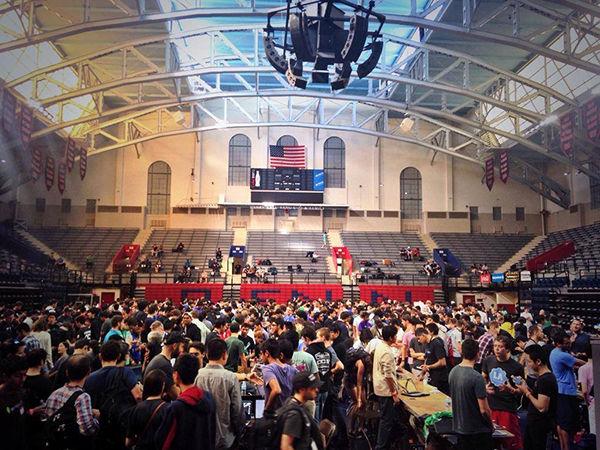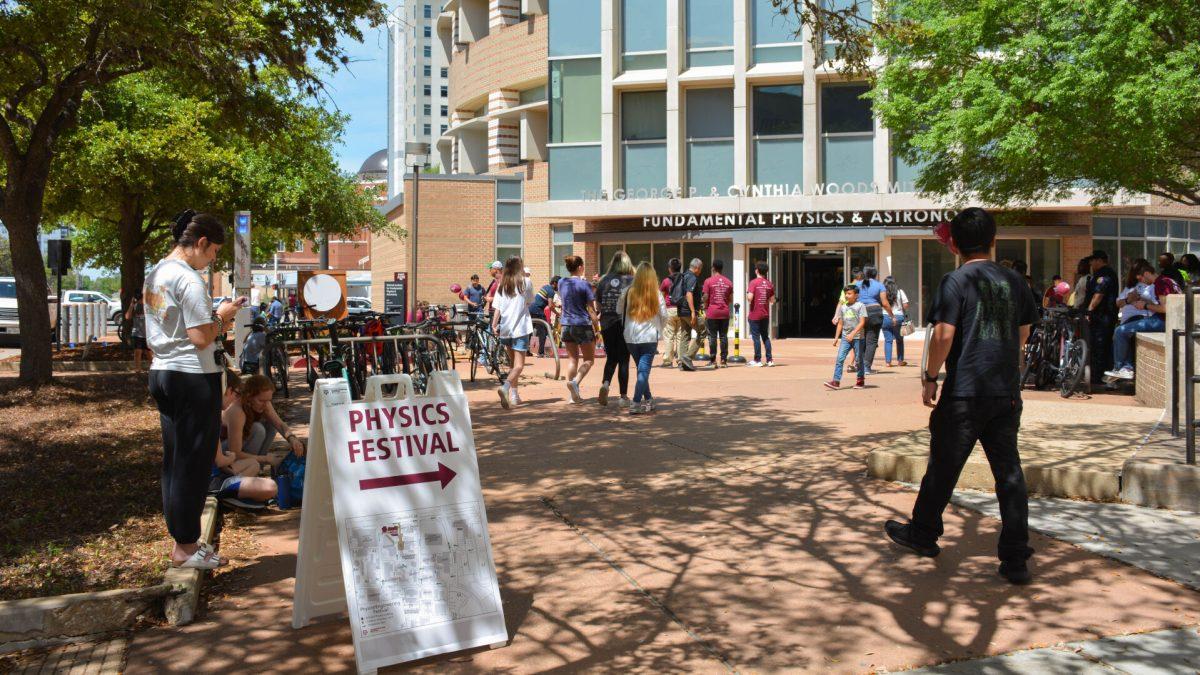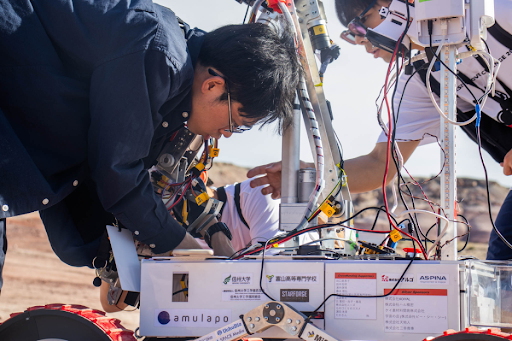Three of the five TAMUHack co-founders received awards at the 10th semiannual PennApps hackathon.
PennApps hackathon is hosted at the University of Pennsylvania and attracts hackers from all over the world as far as England, Switzerland and Singapore. The competition has tackled issues dealing with education and technological development in the past, but this year hackers were asked to solve health and medical problems in an attempt to fix what PennApps calls an antiquated healthcare system.
Robert Timm, computer science junior, said his team’s invention, Idleguard, targeted patient’s health after leaving the doctor’s office and ended up winning one of the “Best Health Hack” awards.
“When a patient gets discharged from the hospital they get instructions and information they need to keep up with,” Timm said. “Our invention would alert patients of when they need to take their medications, when to hydrate, and when they should notify their doctor.”
Timm said patients can get overloaded with information, and they often only receive a hard copy of instructions that is easily lost. Idleguard would facilitate the process for patients to keep up with all the information given to them, placing all the information in a computer database, which would then send alerts out to patients.
“We wanted to create a site for physicians to enter that information in a database,” Timm said. “It sits there and sets a timer that notifies the patient of their instructions. It’s event driven. Sending notifications through email, text message, and smartwatch.”
Idleguard not only won “Best Health Hack” but it also won the “Best Collaboration Hack.”
“We came to PennApps with open minds and hearts full of the Aggie spirit,” said Chris Nolan, computer engineering junior. “With no sleep, a little luck, and tons of hard work, we left with one first place award and two category awards.”
The Idleguard team included Timm, Nolan and Eleni Mijalis, all co-founders of TAMUHack.
“[Our team] spent time working on different projects,” Rafael Moreno, computer science junior, said. “In the end we developed a virtual reality world that combined an Oculus Rift and a Myo Armband.”
Timm attributed the success of Idleguard at the competition to the fact that the invention was complicated and would create more accountability.
Timm said Idleguard was received well and at least one investor showed interest in what the team helped solve.
“Going into this hack I knew I wanted to do something healthcare related and coming back with a win validates that I’m going in the right step,” Timm said.
Aggies find success at Hackathon
September 17, 2014

Provided
Over 1000 participants were apart of the tenth bi-annual Pennapps hackathon.
0
Donate to The Battalion
$1765
$5000
Contributed
Our Goal
Your donation will support the student journalists of Texas A&M University - College Station. Your contribution will allow us to purchase equipment and cover our annual website hosting costs, in addition to paying freelance staffers for their work, travel costs for coverage and more!
More to Discover









